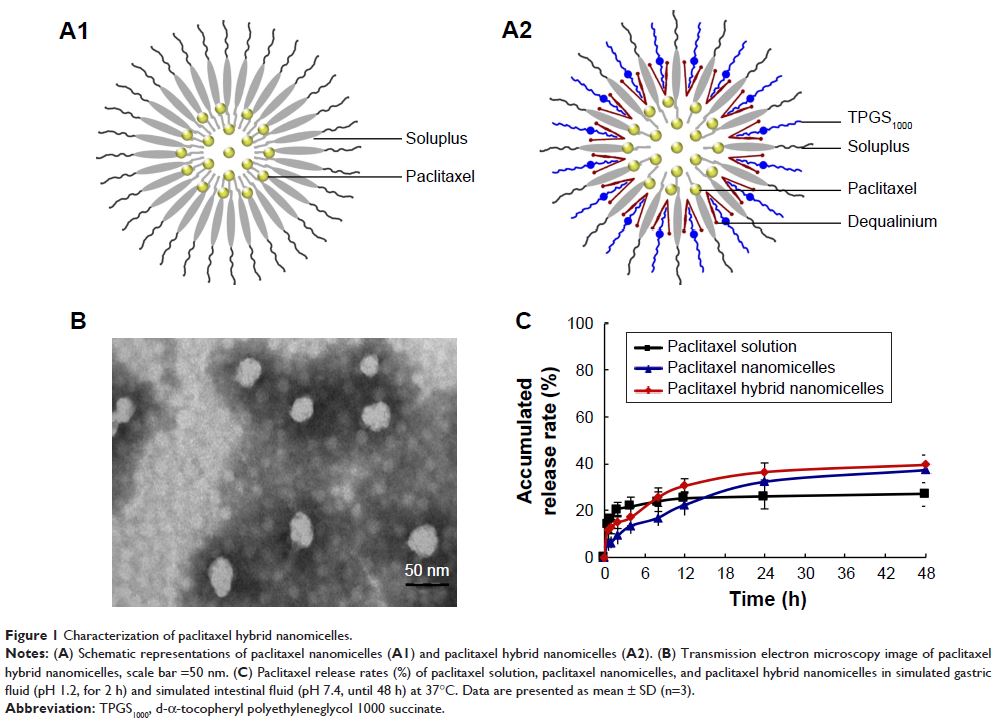108985
论文已发表
注册即可获取德孚的最新动态
IF 收录期刊
- 3.4 Breast Cancer (Dove Med Press)
- 3.2 Clin Epidemiol
- 2.6 Cancer Manag Res
- 2.9 Infect Drug Resist
- 3.7 Clin Interv Aging
- 5.1 Drug Des Dev Ther
- 3.1 Int J Chronic Obstr
- 6.6 Int J Nanomed
- 2.6 Int J Women's Health
- 2.9 Neuropsych Dis Treat
- 2.8 OncoTargets Ther
- 2.0 Patient Prefer Adher
- 2.2 Ther Clin Risk Manag
- 2.5 J Pain Res
- 3.0 Diabet Metab Synd Ob
- 3.2 Psychol Res Behav Ma
- 3.4 Nat Sci Sleep
- 1.8 Pharmgenomics Pers Med
- 2.0 Risk Manag Healthc Policy
- 4.1 J Inflamm Res
- 2.0 Int J Gen Med
- 3.4 J Hepatocell Carcinoma
- 3.0 J Asthma Allergy
- 2.2 Clin Cosmet Investig Dermatol
- 2.4 J Multidiscip Healthc

口服紫杉醇杂合纳米胶囊治疗耐药乳腺癌
Authors Dian LH, Hu YJ, Lin JY, Zhang JY, Yan Y, Cui YN, Su ZB, Lu WL
Received 27 August 2017
Accepted for publication 6 December 2017
Published 2 February 2018 Volume 2018:13 Pages 719—731
DOI https://doi.org/10.2147/IJN.S150140
Checked for plagiarism Yes
Review by Single-blind
Peer reviewers approved by Dr Govarthanan Muthusamy
Peer reviewer comments 2
Editor who approved publication: Dr Lei Yang
Aim: Oral
chemotherapy using anticancer drugs would improve the clinical practice and the
life quality of patients. The aim of the present study was to develop
paclitaxel hybrid nanomicelles for oral administration to treat resistant
breast cancer.
Methods: Evaluations were performed on human breast cancer MCF-7 cells,
drug-resistant breast cancer MCF-7/Adr cells, and in MCF-7/Adr-xenografted
BALB/c nude mice. The nanomicelles were composed of the polymer soluplus,
d-α-tocopheryl polyethyleneglycol 1000 succinate (TPGS1000), and dequalinium (DQA). The constructed paclitaxel hybrid nanomicelles
were ~65 nm in size.
Results: The nanomicelles improved cellular uptake and anticancer efficacy
in the resistant breast cancer cells and induced mitochondria-mediated
apoptosis. The mechanism of the apoptosis-inducing effect was related to the
co-localization of the nanomicelles with mitochondria; the activation of
pro-apoptotic protein Bax, cytochrome C, and apoptotic enzymes caspase 9 and 3;
and the inhibition of anti-apoptotic proteins Bcl-2 and Mcl-1. Oral
administration of paclitaxel hybrid nanomicelles had the same anticancer
efficacy as the intravenous injection of taxol in resistant breast
cancer-bearing mice. The oral suitability of this formulation was associated
with the nanostructure and the actions of TPGS1000 and DQA.
Conclusion: The fabricated paclitaxel hybrid nanomicelles could provide a promising
oral formulation to treat drug-resistant breast cancer.
Keywords: paclitaxel, nanomicelles, oral, drug-resistant breast cancer, mice
